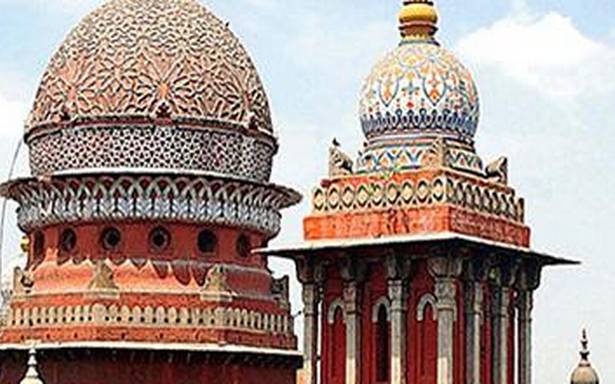High Court observes thus while dismissing a writ petition that sought the perpetual continuation of lease of a temple property
Temple properties are owned by deities, considered a perpetual minor as per law. A High Court, being the custodian of such minors, is bound to protect the interest of the deities and prevent attempts to squat over the properties by misusing the litigative process, the Madras High Court has said.
Justice S.M. Subramaniam made the observations while dismissing a writ petition filed by a nonagenarian who was in occupation of Coimbatore Maagaliamman temple property since 1960 and wanted the lease to continue perpetually for his son, who was assisting him now in conducting business at the property.
After finding that the temple administration was entitled to lease out properties only for a period of five years and any extension beyond that required an approval from the Hindu Religious and Charitable Endowments (HR&CE) Commissioner, the judge said the petitioner had not produced such approval.
He also found that the lessee had been paying a monthly rent of ₹4,000 for a long time and when it was increased to ₹17,200 a month recently, he had filed the present case, seeking a copy of the HR&CE Joint Commissioner’s proceedings based on which the temple Thakkar had increased the monthly rent.
Holding that the petitioner has no semblance of legal right to maintain the writ petition and that he could not be construed as a leaseholder at present in the absence of HR&CE Commissioner’s approval, the judge directed the department to initiate eviction proceedings as per Section 78 of the HR&CE Act of 1959.
“Great Souls donated their hard-earned money to religious institutions with an expectation that their donations will be utilised for the benefit of the temple.
If their wishes are not honoured, the competent authorities and the trustees are not only committing a sin but also infringing upon the right of the minor deity,” the judge said.
Source: Read Full Article

